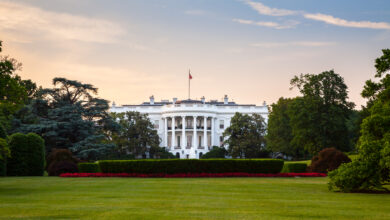
The Quick Take
A quick look at the headlines this week 👀🏃🏻♀️
- Turkey: President Recep Tayyip Erdoğan’s ruling Justice and Development Party (known by the Turkish letters AKP) suffered a blow at the ballot box last Sunday, losing the mayorships in Ankara, Antalya, Adana, and, possibly, Istanbul — which is being contested.
- Ukraine: In Ukraine, a 41-year-old comedian, Volodymyr Zelensky, captured 30 percent of votes in the presidential race, ahead of the incumbent President Petro Poroshenko, who garnered 18 percent. Because no candidate passed the 50 percent threshold to win office, there will be a runoff on April 21.
- Algeria: He’s out. After weeks of protests, Algeria’s 82-year-old President, Abdelaziz Bouteflika, has resigned, after 20 years in power. Power of the people. 👊🏼💥
- Malaysia: Malaysia’s former Prime Minister, Najib Razak, faced charges of skimming $681m (that’s MILLION) from the sovereign wealth fund called 1MDB, a fund designed to boost Malaysia’s economy through strategic investments.
- Brexit: We hope you’re sitting. Of course you’re sitting, Brexit is exhausting. This week, Brexit minister Chris Heaton-Harris resigned. Meanwhile, Jean-Claude Juncker, current president of the European Commission, rejected an extension to figure out Brexit. If British parliamentarians can’t come up with an agreed way forward by April 12, the new Brexit date, they leave with “no-deal” or face a long delay. GAH. If May is able to get the deal through by April 12, the UK will stay a member state up until May 22. We need a drink too. 🍸
- Slovakia: Zuzana Čaputová became Slovakia’s first female president in a second round of voting. That brings the female leader count to 24. Who are they? We’ll bring them to you next week (something to look forward to!).
- Israel: Israelis go to the polls on Tuesday.
- India: Indians begin their electoral process on April 11.
- NATO: Happy birthday NATO, the body turns 70 this week! 🎂🎈🎉
What are friends for?
NATO turned 70 this week. That’s something. When the Soviet Union collapsed in 1991 and the former Warsaw Pact of Eastern European countries shook off the shackles of communism, there was doubt that NATO would make it to its 50th birthday in 1999 (yes, the Prince song is stuck in our heads).
The military alliance, originally created to counter Soviet power, has endured, and expanded (get excited we’re going to get nerdy on you…).
- In 1949, 12 countries came together to form the alliance: Belgium, Canada, Denmark, France, Iceland, Italy, Luxembourg, the Netherlands, Norway, Portugal, the UK, and the US;
- In 1952, Greece and Turkey joined;
- In 1955, Germany;
- In 1982, Spain;
- When NATO turned 50 in 1999, it brought in the Czech Republic, Hungary, and Poland;
- In 2004, it opened its doors to Bulgaria, Estonia, Latvia, Lithuania, Romania, Slovakia, and Slovenia.
Today, NATO has 29 members, including Albania, Croatia, and Montenegro, which have joined in the past decade (fun fact: Sweden is not a NATO member).
All this expansion hasn’t been without problems. Russia and its leader Vladimir Putin have not been happy about it. Putin views NATO’s expansion, into Russia’s backyard, as provocative. A valid point.
Another persistent criticism of NATO has been its relevance. With the threat of the Soviet Union gone, what is the point of the alliance? Trump has said that NATO is “obsolete” and “expensive.”
NATO has played key roles in the Balkans, during the Yugoslav wars in the 1990s, in Afghanistan, and for counterterrorism efforts in Iraq, Libya, and Syria. As the alliance looks ahead, there is even more work to do, especially in the cyber realm. Cybersecurity is one of the greatest national security threats today.
One can look at national security through blinders — something that is happening only to you; or one can look at national security from a wide perspective — something that is happening to everyone. Positive or negative, NATO enables member states to look at the world from that wider purview. Therein lies its value … or to give you another 1980s music analogy — that’s what friends are for … (sing it, Stevie!).
- NATO at 70. What’s next? Julianne Smith, Nathalie Tocci, and Camille Grand share their thoughts. (Politico)
- NATO is the foundation for a whole and free Europe and must keep its door open to new members, writes Molly Montgomery. (Brookings)
- How strong is public support for NATO? Karlyn Bowman discusses. (Forbes)
- Listen: NATO at 70 — Is it time to overhaul one of America’s oldest alliances? Rachel Ellehuus joins the discussion. (NPR)
- Tensions have long simmered between Russia and NATO. Madeline Roache on what to know about their complicated history. (Time)
As mentioned above, Turks sent a strong message to Turkey’s strongman leader, Recep Tayyip Erdoğan: We ain’t happy. Why aren’t Turks happy? It’s the economy, sista. The Turkish Lira lost 30 percent of its value against the USD last year, and keeps plummeting. Unemployment and inflation have shot up. The Turkish economy has slowed down. Istanbul and Ankara, Turkey’s biggest cities, are where that contraction is most felt, with standard of living higher than other places in the country. It’s important to point out, however, that while the AKP may have lost Turkey’s major cities, it still held onto its majority in the heartland.
More on the Turkish municipal elections:
- Turkish voters send a clear message to Erdogan, says Asli Aydintasbas: Enough. (Washington Post)
- Meanwhile Erdogan’s initial message to Sunday’s losses was out of character for his usual combative self, says Amberin Zaman. (Al Monitor)
- The economy is one reason for Erdogan’s setback on Sunday. Dasha Afanasieva thinks it’s only going to get worse. (Reuters)
Read the entire FP Interrupted newsletter here. To subscribe to the newsletter, click here.




